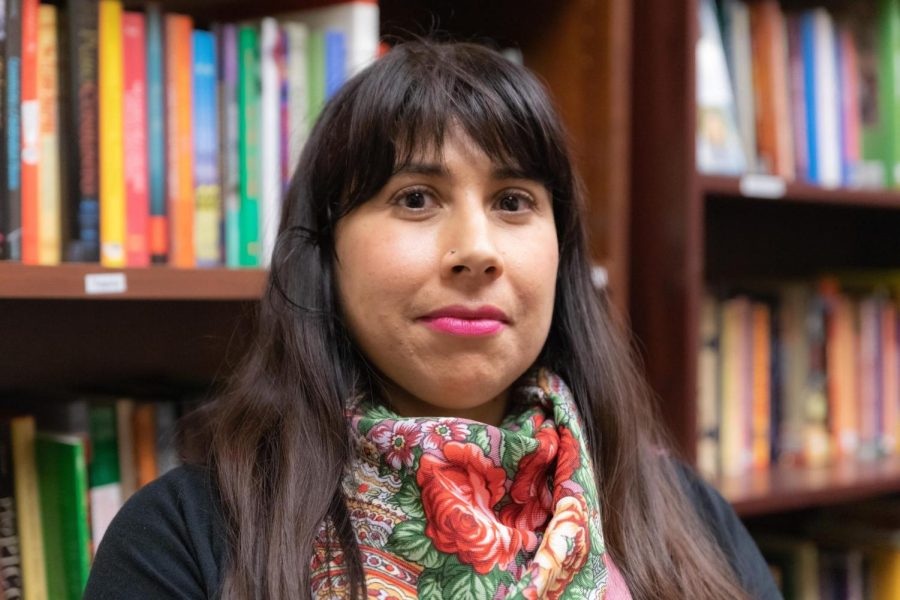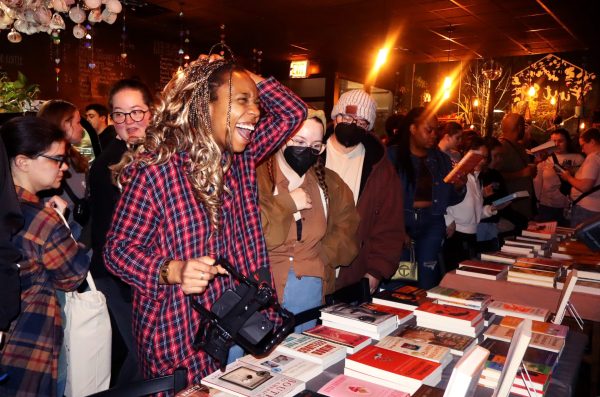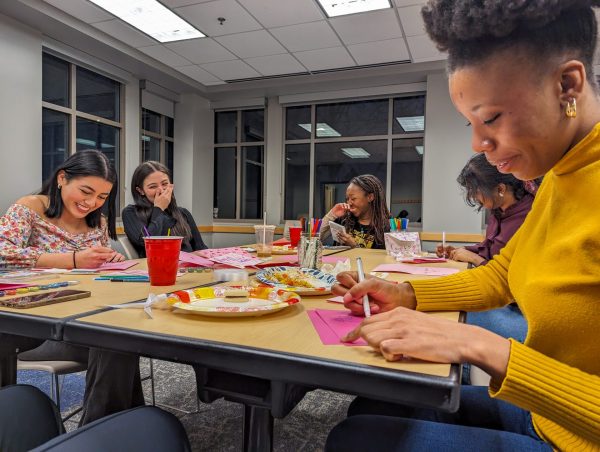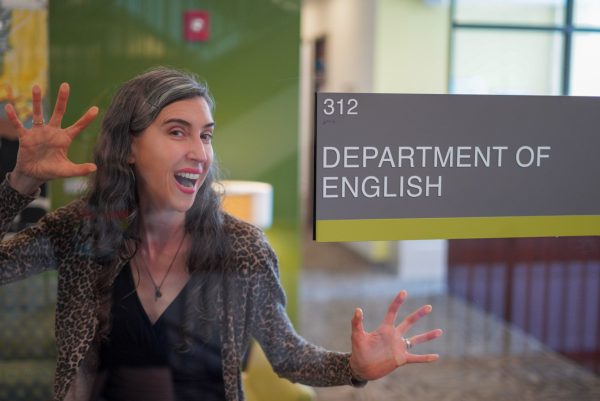Erika L. Sánchez educates through love of poetry
Growing up, author and poet Erika L. Sánchez did not have a bookshelf in her home. Her parents were unable to read to her after being too exhausted from working long hours at factory jobs. Reading and writing weren’t encouraged in her household.
However, Sánchez’s passion for writing bloomed when she began writing poetry at 12 years old.
“I was good with words,” Sánchez said. “I was able to express myself and I just kind of clung to that.”
Her love for poetry began to grow from there. She became the first writer in her family.
Sánchez is a first-generation college graduate. Her parents immigrated to Cicero, Illinois in 1978 from Mexico. They worried about how she would make a living through writing and believed it was not a secure or promising career.
“I always emphasize that poetry isn’t often respected in our culture, isn’t deemed important,” she said. “Poetry is something that encapsulates so much; it’s this art form that, in some ways, is boundless, there are no true rules, you could do whatever.”
Fast forward two decades, Sánchez is now a writer in residence at DePaul’s Latino American and Latino Studies program. She focuses her teaching on Latinx poetry and writing workshops and connecting with students.
“We’re talking about literature, it’s not like science, this is about matters of the heart, what it means to be alive,” Sánchez said about her teaching philosophy. “From my experience, professors don’t really care about what you think and how you feel. I refuse to be that way.”
In 2019, Sánchez published her first young adult novel, “I Am Not Your Perfect Mexican Daughter,” a mystery and coming of age story about Julia, a first-generation Mexican American young woman who wants to go to college in New York.
Sánchez called upon her experiences growing up in dual cultures, which often left her feeling unworthy.
“So many of us have this experience of belonging to a family where we don’t really fit in, and we don’t know how to be ourselves in this environment and we feel like we need to leave in order to grow,” Sánchez said.
Cale Ruiz, a student at School of the Art Institute of Chicago, recently read Sánchez’s work in a Latinx literature class. They related to the main character’s stress of living up to her family’s expectations while wanting to become herself.
“This book accurately describes the immense pressure on first-generation Latinx individuals to uphold the traditions and culture of their family, while simultaneously navigating American society,” Ruiz said.
Latinx coming of age stories written by Latinx people are critical to accurately represent these unique experiences.
“Being Latinx myself, exposure to books like ‘I’m Not Your Perfect Mexican Daughter’ as a young adult would have undoubtedly helped with my own struggles of finding identity,” Ruiz said.
DePaul junior Cindy Rocha was immediately drawn to the book upon seeing the cover art, which features the main character with her back turned to readers, when she read it in her junior year of high school.
“The title itself with the cover art felt like such a call to the standards which are high for particularly eldest daughters in a Latino household,” Rocha said. “I bought it and read it in about three days.”
Rocha loved the book’s message about mental health, intergenerational trauma and immigration.
“This book felt like home,” she said.
Sánchez will also be the co-producer of the “I Am Not Your Perfect Mexican Daughter” Netflix film, which will be directed by America Ferrera with a screenplay by Linda Yvette Chávez.
“[This] has the potential to bring this important story to a larger audience as well as further represent Latinx individuals in the film industry and media,” Ruiz said.
Sánchez’s second book, “Crying in the Bathroom,” is a memoir and will be released in early July. Although it is not a sequel to her first book, she’ll continue many of the themes from the first, including mental health among Latinas.
“Crying in the Bathroom” focuses primarily on the time Sánchez was in Spain as a Fulbright scholar. It was her first time being alone without the expectations of her family. She was able to engage with poetry on a level she couldn’t at home.
“I flourished,” she said. “I was like, ‘Oh, man, this is a life that I can have.’ I just had to, like, kind of reinvent myself there.”
But as she returned, the 2008 recession made it difficult to find a job. Sánchez despised corporate life and was left feeling helpless.
“I would be writing all the time on the side,” she said. “It was like, all I wanted to do, and I didn’t know how to make it happen. So it was really frustrating.”
It was difficult undergoing the writing process for her memoir. Sánchez was confronting the moments when she was most depressed and crying in the bathroom. But through writing about it, she freed herself as well.
“It also felt like it was cathartic,” she said. “I was extracting something from my soul.”
Unlike her first novel, her memoir will be her personal experiences with mental health. She will be vulnerable and honest about this taboo topic in Latinx culture, she said.
“But I think it’s important to be that honest and vulnerable because people connect to that,” Sánchez said. “If I had something like this, it would have changed my life in some form. I want to make someone feel like this.”
“Serious mental illness (SMI) rose from 4 percent to 6.4 percent in Latinx/Hispanic people ages 18-25, and from 2.2 percent to 3.9 percent in the 26-49 age range between 2008 and 2018,” according to Mental Health America.
“I grew up feeling like I didn’t matter,” Sánchez said. “When did I ever see someone like me doing anything interesting? The women in my family did not have it easy.”
One story at a time, Sánchez is breaking the barriers of discussing difficult topics in Latinx culture.
Sánchez is slowly starting to read to her 18-month-old daughter.
“It’s been really fun to read with her and take her to the Art Institute,” she said. “I’m doing very different things now with my daughter.”

















